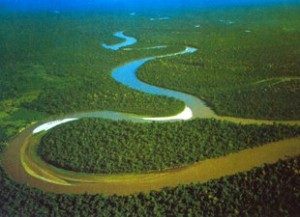 The Hydrography is a branch of the Physical geography that takes care of the description of the seas and water currents that exist on the planet.
The Hydrography is a branch of the Physical geography that takes care of the description of the seas and water currents that exist on the planet.
Discipline that studies, describes and identifies on maps the water currents present on earth
And on the other hand, the word Hydrography designates the set of seas, lakes and running waters of a certain geographical area.
Among the topics of interest covered by Hydrography are: the flow, the bed, the fluvial sedimentation of continental waters and the basin.
Water is one of the most important components of our planet and by case it is that its knowledge demands a study and specific knowledge.
The importance of water for life, its great presence on the planet and the various types
The waters occupy a remarkable percentage of the terrestrial surface, more than seventy percent, distinguishing the oceans that are enormous masses of salty water that divide and separate the continents; the seas are also classified among those of salt water but have a smaller proportion compared to the former.
On the other hand, rivers and streams are smaller bodies of water that have a pluvial origin and are characterized by their fresh water.
Lagoons and lakes are also freshwater that form in impermeable bottom cavities and are fed by rivers and streams.
And finally, groundwater, which comes from precipitation in all its forms, whether it be rain, hail, snow, among others, and from the thaw that filters into the ground through the permeability of some rocks.
This infiltrating water moves through the interior of the earth very slowly and by its attraction until it runs into an impermeable rock that does not allow liquid to pass through and then cannot continue on its way, for example, it accumulates. in one place and forms what is called an aquifer, a mixture of sand, rock and water.
Salt waters represent the highest percentage with a 94% presence on earth, while fresh waters are a minority with only 6%.
For its part, the watershed It is the territory that is drained by a single natural drainage system, that is, a river that flows into a sea or an endorheic place.
It should be noted that it is a frequent situation that the hydrographic basin of a river is taken as a specific natural region, on which detailed analyzes of the specialties it holds are developed.
Another prominent concept within Hydrography is that of hydrographic slope, which is made up of a set of rivers that have their respective tributaries and flow into the same sea.
The rivers that make up the hydrographic slope usually have similar characteristics.
Distinction of Hydrology
As some confusions are usually generated that lead to a misleading and indistinct use of both terms as if they imply the same thing, it is worth noting that the concepts of hydrography and hydrology refer to different issues; hydrology It is the geographical science that is dedicated to the study of the distribution and properties of the waters found in the earth's crust and in the atmosphere.
Therefore, hydrology deals with studying soil moisture, glacial masses and rainfall, among other phenomena.
This discipline is responsible for developing hydrographic charts in which the waters are mapped, being identified with the blue color. Waters are essential for the existence of life on earth and for life to continue to exist; animals, plants and humans we need it to live and for example, human settlements have been found since the most remote times always near some body of water.
They are also essential for economic development, because they allow the development of various activities associated with it.









